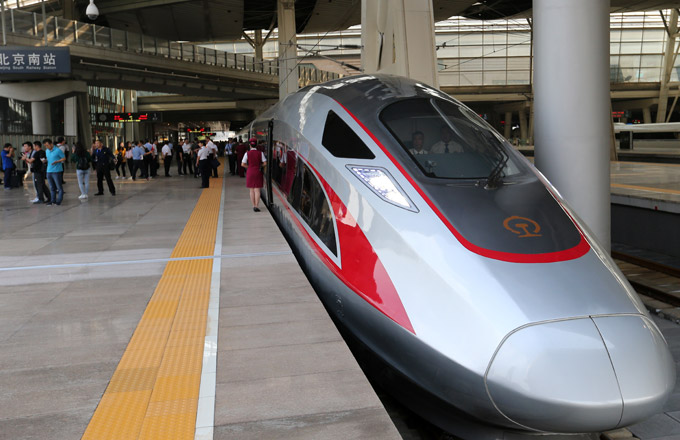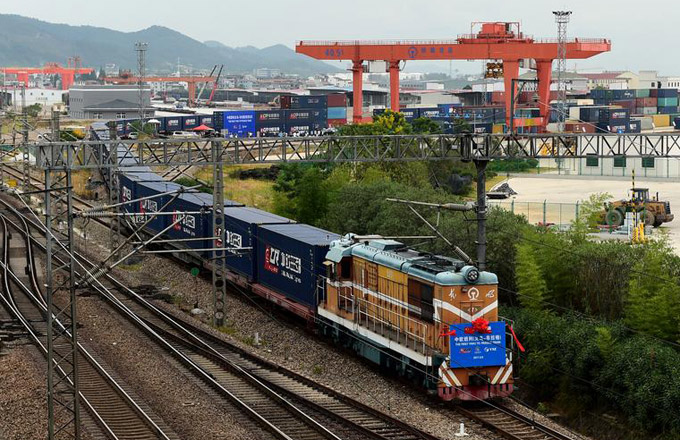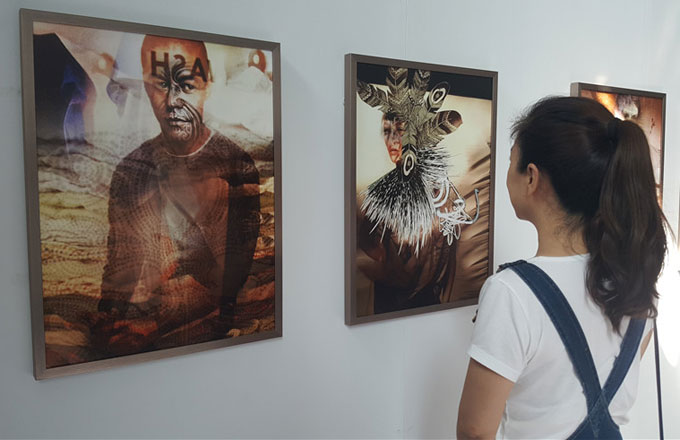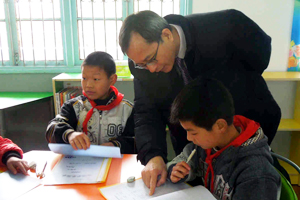China works hard to get its story across
As China strives to achieve its goal of national rejuvenation in a world of complex opinions, there is no doubt it faces tough challenges in promoting its culture and making the country's voices heard. On these fronts, the country's publicity, ideological and cultural departments have played a vital role in communicating the nation's vision since the 18th National Congress of the Communist Party of China in 2012.
At a conference on publicity and ideological work held in August 2013, President Xi Jinping said, "Facing unprecedented challenges and hardship, we must persist in consolidating mainstream ideology and opinion."
Xi, also general secretary of the CPC Central Committee, stressed positive publicity that upholds unity, stability and encouragement as a key guideline for the country's publicity and ideology work.
Party leadership
Since the 18th CPC National Congress, Xi has always attached importance to all areas of communication, be it in publicity, ideology or cultural work.
Xi has attended several major meetings and delivered a series of speeches on these very issues.
Several guidelines have been introduced on the role of literature and the arts, socialist core values, and traditional Chinese culture, all with distinct Chinese characteristics.
Authorities have stepped up efforts to promote the key messages in Xi's speeches by sending Party representatives out to communities, schools, companies and the grassroots to communicate this national vision.
Reforming media
A series of prime-time political documentaries produced by major Chinese networks have recently become huge hits across the country.
They have summarized the country's achievements in reform, rule of law, diplomacy and anti-corruption, as well as economic and social development over the past five years. The documentary teams have produced edited clips, just a few minutes long, perfect to connect with people on social media. All this shows how State media are effectively adapting to the modern era.
In February of last year, Xi ordered State media to integrate new media with traditional reporting, so that the country could make use of new media's edge in modern communications.
Leading State media have given priority to developing mobile platforms and reshaping their reporting processes to coordinate and integrate various tasks.
Xi has told media groups to turn up their voices on the global stage, telling stories about the new, modern China, while developing flagship media groups with a strong global influence.
On Dec 31, the China Global Television Network was launched with six TV channels, three overseas channels, a video content provider and a cluster of services on new media platforms. State media outlets were established in almost all key regions and major cities across the globe.
Socialist core values
Promoting socialist core values has long been a key part of the CPC message. According to Xi, such values include the national goals of prosperity, democracy, civility and harmony; the social goals of freedom, equality, justice and the rule of law; and the individual values of patriotism, dedication, integrity and friendship.
Xi has said that the deepest and most enduring strength that a nation can have lies in the core values commonly recognized by its society.
Since 2013, 116 people have been honored as national models of morality across the country. Campaigns on frugality, trust and civilized behavior have been launched across the nation, turning people into active believers and communicators of the core values that the country holds dear.
Cultural prosperity
China has been dedicated to speeding up and reforming the development of its cultural industry. In February 2014, a plan was approved to deepen reform on the cultural industry, setting a road map, schedule and task book for how it was going to achieve its goals.
Four years later, the industry has basically completed its reforms, and numerous memorable works have been created. In 2016 alone, over 770 films were produced in China.
This summer, Chinese action film Wolf Warrior 2 set a record at the domestic box office, pulling in revenue of 5.6 billion yuan ($851.6 million). The epic film tells the fictional story of a former Chinese Special Forces operative's adventures rescuing compatriots and locals in a war-torn region of Africa.
XINHUA
- Cultural protection achievements of the last five years
- China's major archaeological finds in last five years (part 1)
- China's major archaeological finds in last five years (part 2)
- Five years on: How law rules in the country
- Five years on: Innovation in China
- Five Years On: Judicial System Reform
- Judicial system reform over the five years
- Five years of progress
- Five years on: Roads bring country prosperity




















